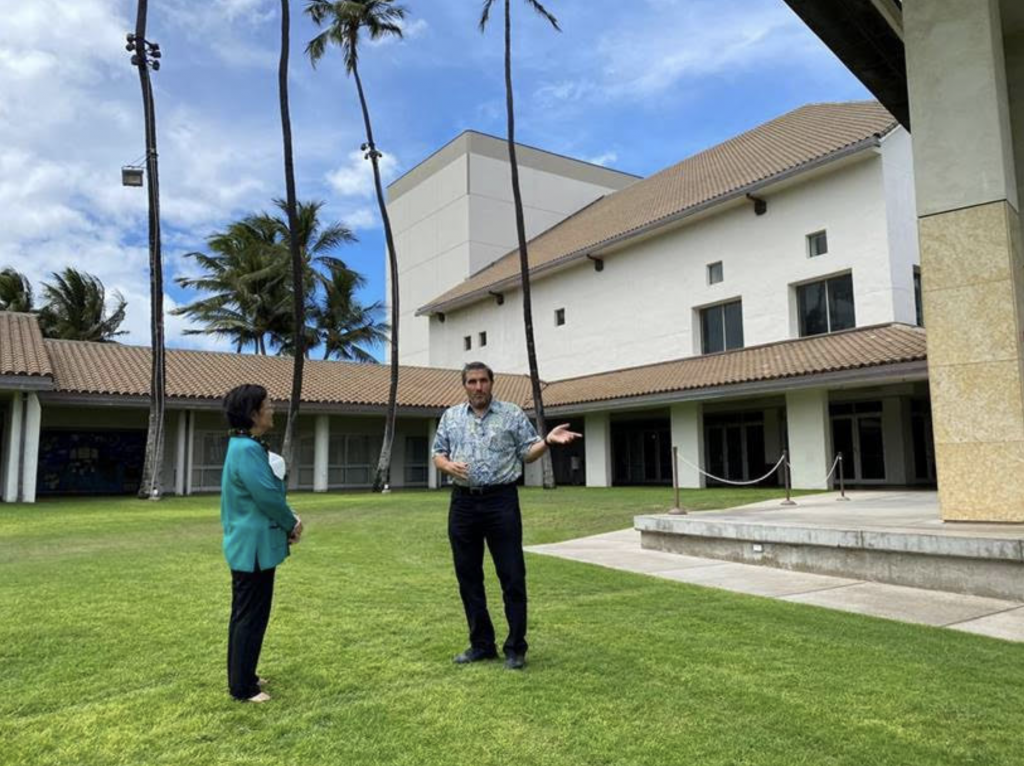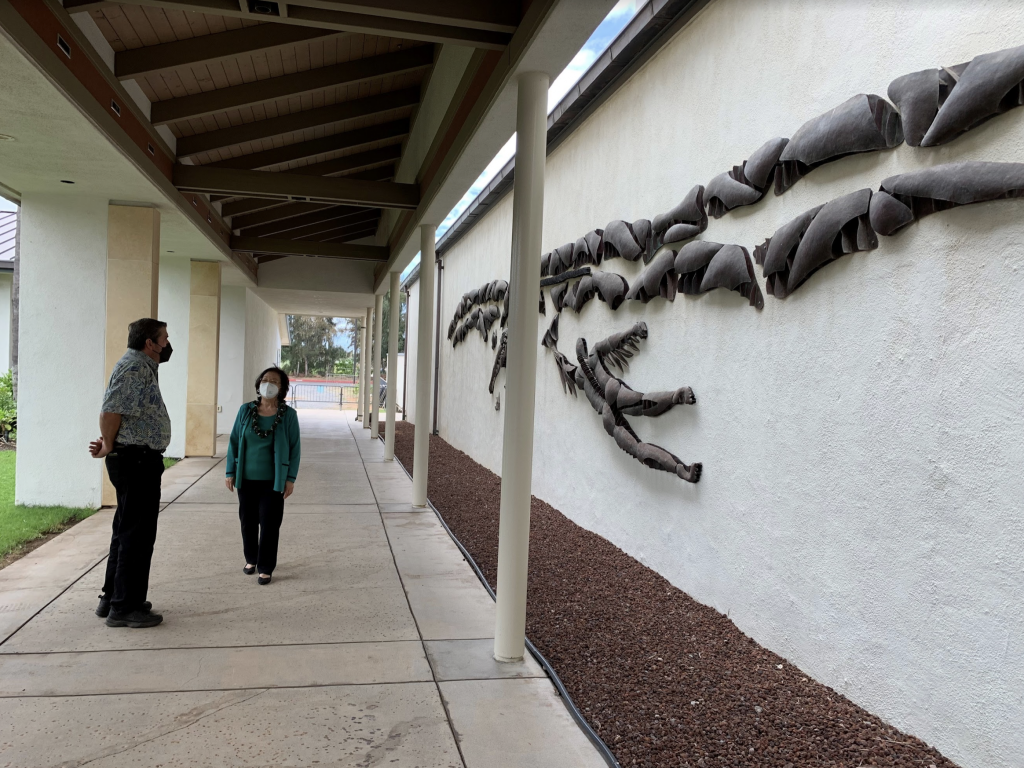Hirono visits Maui, tours site of Honoapiʻilani realignment project
A visit to Maui by US Senator Mazie K. Hirono (D-HI) highlighted federal investments in Hawaiʻi communities and efforts to support ongoing recovery and rebuilding efforts from the COVID-19 pandemic.
During her visit, Senator Hirono toured the site of the Honoapiʻilani Highway Realignment Project, which last year received $22 million in federal funding.
Sen. Hirono started her day at a section of the Honoapiʻilani Highway Realignment Project in Olowalu that will relocate several miles of the Honoapiʻilani Highway that is currently susceptible to sea-level rise and coastal erosion.

Last fall, Senator Hirono helped the Hawaiʻi Department of Transportation secure a $22 million federal Rebuilding American Infrastructure with Sustainability and Equity or “RAISE” grant to help fund the project. That funding is in addition to the approximately $1.5 billion in formula funding for highways and bridges Hawaiʻi is set to receive from the bipartisan Infrastructure Investment and Jobs Act signed into law last year.
“The Honoapiʻilani Highway is a critical connection between West Maui and the rest of Maui,” said Senator Hirono in a press release update. “But with climate change getting worse, rising sea levels threaten to make parts of the highway impassable, which would cause significant hardship for people who rely on the highway to get to work, school, and so much more. As we work to combat climate change, we must invest in resilient infrastructure that will serve our communities now and in the long run. I was proud to help secure federal funding for this realignment and other similar infrastructure projects with the $1.5 billion in funding for bridges and highways Hawaiʻi will receive through the bipartisan infrastructure law.”
She also visited two restaurants and a performance venue which all received federal economic relief funding during the COVID-19 pandemic.

During her visit, Sen. Hirono met with Mike Phillips, owner of Coconut’s, who told her that he would not be in business today if it weren’t for the RRF funding that enabled him to keep the restaurant open and retain 112 employees during the pandemic. Last month, all but five Senate Republicans voted against providing $40 billion in additional funding for the RRF, according to Sen. Hirono.
Coconut’s Fish Café in Kihei received $2,327,164 in relief funding from the Restaurant Revitalization Fund established by the American Rescue Plan.

“The COVID-19 pandemic was devastating for restaurants who were forced to close their doors with little certainty about when they’d be able to reopen,” said Senator Hirono. “This was especially true in Hawaiʻi, where the loss of tourist business made it even harder for businesses to survive. Democrats created the Restaurant Revitalization Fund to help restaurants like Coconut’s Fish Café survive and I’m glad to see these restaurants once again serving our communities, employing our neighbors, and contributing to our economy.”
The Senator ended her day on Maui with a visit to the Maui Arts & Cultural Center, which received $2,925,854 in relief funding through the Shuttered Venue Operators Grant. The SVOG was established during the pandemic to help arts centers and live venues like MACC survive the pandemic while live performances were not safe or feasible.
Thanks to the SVOG funding it received, the MACC—which was forced to temporarily close in March 2020—creatively pivoted to virtual performances to continue employing performers, technical crews, and staff until it could resume in-person programming.

“For nearly 30 years, the Maui Arts & Cultural Center has hosted countless performances, exhibits, classes, and more, contributing to the rich cultural history of Maui and Hawaiʻi,” said Senator Hirono. “When COVID struck, MACC and venues like it were suddenly unable to operate and were unsure if they’d be able to survive financially. The arts are essential to our communities, and Congress created the Shuttered Venue Operator Grant program to ensure these venues and the programs they put on would be able to return once it was safe to do so. After more than two years, it was great to see MACC beginning to reopen and deliver in-person programming.”










